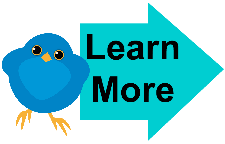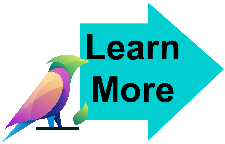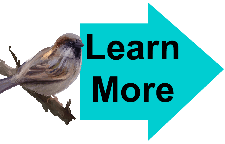What Can Birds Eat?
Here's 54 Edibles That Birds Can And Can't Eat
There is a simple, unique joy from feeding birds in your garden, windowsills, and other outdoor spaces. However, you must ensure that the food you give them is safe and edible. So, what can birds eat?
Birds can eat a wide variety of food, from seeds to insects and fat. You can also supplement your bird's diet with fresh fruits such as blueberries, blackberries, mango, and watermelon in moderation. Avoid chocolate, avocado, mushrooms, and moldy bread, which can harm birds. what can birds eat
If you want to answer the question: What can birds eat? The answer can vary from one species to another. Know what types of bird food you can offer through this article.

Can Birds Eat Bread?
Birds can eat bread; however, it should not be their sole food source. It contains little nutritional value and would not contribute to the growth and development of birds. Combine it with other foods and avoid stale or moldy bread.
Bird Health warns of mycotoxins in moldy bread that may cause illness and egg-laying problems in birds.
Can Birds Eat Grapes?
Fruit-eating birds can eat grapes and raisins. However, you should ensure that the fruit and raisins you give them are free of preservatives. If the grapes are already moldy, dispose and do not offer them to birds.
Can Birds Eat Rice?
Certain bird types, like pigeons, pheasants, and chickens, will eat rice, even if uncooked. Although there is a prevalent myth that it causes swelling, such has been disproven. However, rice may only attract some species of birds.
Can Birds Eat Watermelon?
Birds can eat watermelon. It is rich in vitamins and is suitable for hydration, especially during summer. Most watermelon parts, from flesh to seeds, are safe for birds to eat. They may especially enjoy eating the seeds. what can birds eat
Can Birds Eat Chocolate?
Birds cannot eat chocolate. The theobromine component of chocolate makes it toxic to birds and other animals. If ingested, it can cause diarrhea, vomiting, and, worse cases, death.
Just as important as the question: What can birds eat? It’s best also to ask what they should never consume. According to PetMD, even small amounts of chocolate may be fatal for our feathered friends. They recommend giving a sweet fruit snack as a less hazardous alternative.

So which bird feeders do birds like best? Here's a list of our top picks along with suggestions for decorative, budget and window feeders, as well as the best foods for those feeders.
Can Birds Eat Strawberries?
Many bird species can eat strawberries. They are a good source of nutrients and hydration, making them the perfect summer treat. Thus, birds enjoy raiding strawberry patches. However, ensure the fruit you give is clean and free from insecticides.
Can Birds Eat Popcorn?
Birds can eat pop and unpopped popcorn. However, avoid giving them the salted, buttered, or flavored variety because salt harms birds. Thus, it's best to feed them the air-popped type, not the pre-packed microwave popcorn.
Can Birds Eat Tomatoes?
Birds can eat tomatoes, but only rarely. Tomatoes, especially raw ones, are highly acidic, which can pose problems for birds when consumed in the long run. For instance, they can develop ulcers. Thus, I recommend you avoid giving tomatoes to them regularly.
Can Birds Eat Avocados?
Birds cannot and should not eat avocados. It is abundant in persin, a highly toxic compound to birds and other animals. It may cause collapse, lethargy, and in the worst cases, death.
Can Birds Eat Apples?
Birds can eat apples, and many species enjoy feeding on them. Ensure the fruits are free of pesticides and chemicals. I recommend you slice the apples and remove the seeds. The seeds contain small amounts of cyanide, which may be fatal to birds.
Are there any safe kitchen scraps that you can feed birds?
This helpful YouTube video gives 8 choices...
Can Birds Eat Apple Seeds?
Birds cannot eat too many apple seeds. They have low amounts of cyanide, a toxin harmful to humans, birds, and other animals. Although around fifty seeds are needed to induce fatal effects, birds should avoid ingesting them as much as possible.
Can Birds Eat Ants?
Many birds can eat ants. These insects may even be part of their regular diet. Ants are rich in protein, zinc, iron, and potassium, which are crucial for birds. Common ant-eating birds are woodpeckers and starlings. what can birds eat
Can Birds Eat Apricots?
Birds can eat the flesh of apricots. However, you should avoid giving them the fruit with the pit still inside. Like apple seeds, apricot pits contain a toxin harmful to birds. Thus, feed them only apricots with the pit removed for their safety.
Can Birds Eat Bananas?
Birds can eat bananas. However, you should only provide them with the flesh inside. Avoid giving them the peel because the farmers may have used pesticides on their banana crops. Moreover, the peel is rich in cellulose, which they may find hard to digest.
Can Birds Eat Blueberries?
Birds can eat blueberries. These berries are rich in antioxidants, vitamins, and other beneficial nutrients to birds. However, they should be offered in moderation and with other food sources.
Can Birds Eat Broccoli?
Birds can eat broccoli. They can eat it raw or cooked. However, cooked broccoli may have fewer nutrients than raw. This vegetable provides hydration, vitamins, carbohydrates, and protein. However, offer it in moderation and along with other food sources.
Can Birds Eat Blackberries?
Birds can eat blackberries. It is healthy for them, just like blueberries. However, you should offer this fruit in moderation, especially in juice or dried form. Blackberries alone cannot fulfill their nutritional needs. Thus, it should not be their sole food source.

Do you own a bird feeder and want to attract more birds? This helpful article of ours gives some great tips on how to bring more birds to your feeder!
Can Birds Eat Bread Crumbs?
Birds can eat bread crumbs, but only in small amounts. Bread provides no nutritional value; feeding them with it is not encouraged. Moreover, avoid stale or moldy bread. If the crumbs are too dry, moisten them with water first to prevent choking.
Can Birds Eat Beans?
Birds can eat beans, even the dry and preserved ones. However, because of their size, only large birds would be attracted to them if provided in whole bean form. You may break them down into smaller, manageable pieces so other birds can eat them.
Can Birds Eat Brown Rice?
Birds can eat brown rice. Whether brown or white, cooked or raw, birds can eat rice. Each rice type has a unique nutritional value. Thus, giving them one over the other may provide certain nutrients the other does not have. Generally, brown rice offers more nutrients and fiber than white.
Can Birds Eat Chia Seeds?
Birds can eat chia seeds. These seeds provide various nutrients, like vitamins, minerals, antioxidants, protein, and calcium. However, it should be offered in moderation only. Too many nutrients can induce harmful effects, like renal failure.
Can Birds Eat Carrots?
Birds can eat carrots, whether raw or cooked. It is a good source of Vitamin A, which many birds need. If you provide them with carrots, slice them into smaller pieces for easier consumption. Provide in moderation and conjunction with other foods for a balanced diet.
Can Birds Eat Cheese?
Birds can eat cheese. You can combine cheese with fat, seeds, nuts, dried fruit, and other foods to create a nutritional bird cake or food ball for them. However, although cheese is good for them, avoid giving them milk. what can birds eat
Can Birds Eat Cooked Rice?
Birds can eat cooked rice. Some birds prefer it over uncooked because it's easier to eat. Larger birds, such as pheasant and grouse, can eat raw rice, but smaller birds avoid raw grains and opt for cooked rice.
If you are still asking: What can birds eat? The Royal Society for Protection of Birds (RSPC) promotes using cooked unsalted rice as winter food for birds.
Can Birds Eat Crackers?
Birds can eat crackers sometimes. However, as they provide little nutritional value, they should not be a regular treat. Moreover, avoid saltine crackers and other salt-heavy foods—as salt harms them.

Want some great ideas to squirrel proof your bird feeder? Our article here gives some excellent recommendations of devices and squirrel proof feeders to keep those furry varmits away!
Can Birds Eat Cucumbers?
Birds can eat cucumber, especially when offered in chunks of manageable sizes. However, offer this feed in moderation and with other foods for a balanced diet. I recommend fresh cucumber but remove the peel first if you give them waxed cucumber.
Can Birds Eat Corn?
Birds can eat corn. I recommend using medium-sized cracker corn to avoid forming mush, and smaller birds can still eat them. Many birdseed mixtures also contain flaked maize or corn.
Can Birds Eat Dog Food?
Birds can eat dog food as it provides fiber and protein. However, you should preferably provide them with wet dog food. If you only have dry dog food, soak it in water first.
Can Birds Eat Dry Oatmeal?
Birds can eat dry oatmeal. You can offer them as part of birdseed mixtures or bird cakes. However, avoid giving cooked porridge oats. They are too glutinous and can harden around the beak, affecting their eating ability.
Can Birds Eat Dried Fruit?
Birds can eat dried fruit, like raisins or currants. But only offer so in moderation. Some dried fruits may have high concentrations of sugar, which is not suitable for frequent eating. You can include dried fruits in bird cake and seed mixtures.
Can Birds Eat Dates?
Birds can eat dates, and it is good for them in moderation. However, give them the dried and pitted kind only. You may also dip it in water immediately before offering it for added hydration.
Can Birds Eat Eggs?
Birds can eat eggs. You may even crush eggshells and add them to the mixture. Cooking the shells and egg together is preferred to remove pathogens or bacteria.
Can Birds Eat Flax Seeds?
Birds can eat flaxseeds. They are also commonly included in many birdseed mixtures. They are a good source of nutrients like vitamins, minerals, fiber, and protein.
Can Birds Eat French Fries?
Birds can eat French fries, but they should not, especially regularly. People typically cook french fries in a lot of salt and oil, which harms them. Feeding them raw fries is also not good because the excess starch can accumulate and lead to health problems.
Can Birds Eat Fruit?
Birds can eat fruit. A variety of fruits can provide excellent nutrition and hydration. However, check whether the fruit you are putting out is safe for them. For instance, you should avoid avocados as they are highly toxic to birds.
Can Birds Eat Figs?
Birds can eat figs. They even love these fruits so much that they would flock to fig trees for the fruit and will eat even the seeds of figs. Figs provide energy and nutrients, and many birds find them irresistible.
Can Birds Eat Granola?
Birds can eat granola. However, ensure that all the ingredients are safe for them. Some granola contains chocolate, honey, and excess sugar that is harmful to them. However, oats, nuts, and dried fruits are granola components they can enjoy.
Can Birds Eat Grass?
Birds can eat grass. However, they should only do so occasionally. They should also avoid sharp grass blades as these can cause injuries. Birds also eat grass seeds, but not all are safe for consumption. For instance, Bermuda grass seeds are toxic to birds.
Can Birds Eat Green Beans?
Birds can eat green beans and enjoy eating them raw, cooked, frozen, or canned. However, I don't recommend frozen or canned beans because of preservatives. When feeding beans, remove the string or casings and cut them into small pieces.
Can Birds Eat Honey?
Birds cannot eat honey as it is toxic to them. Their digestive system is not capable of digesting honey. It is also highly acidic and sweet, which is unsuitable for birds. Moreover, it may contain harmful bacteria, which may cause botulism.
Can Birds Eat Hazelnuts?
Birds can eat unsalted hazelnuts, as they are rich in protein, which birds need. However, you should offer them in moderation. They have a high-fat content, which can harm these feathered animals. For some birds, there's no need to de-shell hazelnuts for them to eat.
Can Birds Eat Human Food?
Birds can eat human food, like cooked rice, cheese, fruits, and more. However, you can only offer some human food scraps to birds. Human food should also not be their daily sustenance, especially since most of our food is heavily seasoned or full of preservatives.
Can Birds Eat Kiwi?
Birds can eat kiwis. Although low on sugar, I recommend offering kiwi in moderation and providing other food sources. Birds can eat a whole kiwi—skin to seeds—but removing the peel is required because of pesticides.
Can Birds Eat Lettuce?
Birds can eat lettuce. However, they can only eat it in moderation to avoid excessive nutrients like iron. Moreover, it’s best to offer it with other foods because lettuce provides mainly water and little sustenance.
Can Birds Eat Mango?
Birds can eat mango and often feed on the fruits while still hanging on to the tree. Mangoes are a good source of nutrients, and the juice provides hydration. However, birds should eat mango moderately because of its high sugar content.
Can Birds Eat Meat?
Omnivorous and carnivorous birds can eat meat. Often, their meat source is insects. Thus, you can give them bugs, worms, fat, and cooked meat. Never give birds moldy or rotting flesh. Although they can eat raw meat, it's not advisable to provide such to them.
Can Birds Eat Mushrooms?
Birds cannot eat mushrooms because it is too risky for them. Firstly, it's hard to discern between human-edible and non-edible mushrooms. Then, mushrooms edible for humans are only sometimes safe for birds. Thus, to avoid harmful effects, do not feed mushrooms to birds.
Can Birds Eat Nuts?
Birds can and love to eat nuts, such as almonds and peanuts. They regularly provide nutrition and energy to birds when consumed moderately. However, avoid giving them salted or dry roasted nuts, which can cause harm.
Can Birds Eat Nectarines?
Birds can eat nectarines, which are fruits similar to peaches. However, they should be given in moderation because the fruit's high sugar content may be harmful. Moreover, remove the pit before giving nectarines, as it is unsafe for birds.

Once you've attracted birds to your garden or feeder, wouldn't it be great to identify them and to see them up close? Here's two of our popular articles that will help you do just that...
- Best Books for Birding
- Top Birding Binoculars for Under $100
Can Birds Eat Noodles?
Birds can eat noodles, but you should avoid offering them pasta dish leftovers. The dish's tomato sauce, sugar, salt, and other ingredients are often harmful to them. If you have to feed them noodles or pasta, give them cooked and plain to avoid harmful effects.
Can Birds Eat Oranges?
Birds can eat oranges, but they should eat the fruit moderately because of its acidity. Removing the peel is also best, so it's easier for the birds to eat the flesh and get the juice. You don't have to worry about the seeds as it is non-toxic.
Can Birds Eat Peanut Butter?
Birds can eat peanut butter, but it should have no salt or sugar. You can smear it on other foods so they can enjoy it. You can also mix organic peanut butter with seeds and water (or cornmeal) to make suet paste (or balled treats).
Can Birds Eat Peanuts?
Birds can eat peanuts, whether crushed, grated, or whole. However, you cannot give them salted or dry roasted peanuts. Also, only larger birds enjoy peanuts in shells because it's harder to get to them. Make sure your peanuts are free from aflatoxin.
Can Birds Eat Raisins?
Birds can eat raisins. I recommended including raisins when making bird cakes. You can also soak them in water before giving them to the birds for added moisture and easier consumption.
What Can Birds Eat?...Final Thoughts
The diversity of birds means they also enjoy a diverse selection of foods. They can eat meat, fruits, noodles, and even food scraps. However, always be careful with what you offer.
Some birds are omnivores, so their options are less limited than strict carnivores or herbivores. Before putting out bird food, identify the birds that frequent your area and what food is safe for them.
Back To The TOP Of This What Can
Birds Eat Page

About the Author...
Richard Worden, a dedicated bird lover for over 20 years, I love to share my in-depth knowledge and passion for birds. Read more About Me and my expertise in this field.
- We Know Birds HOME ›
- Bird Health and Care Information ›
- What Can Birds Eat?



